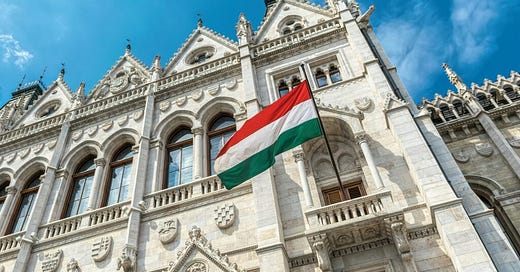Hungary Defended Its Sovereignty and Culture
Hungary, under the leadership of Prime Minister Viktor Orbán, continues to pursue a consistent policy aimed at protecting national sovereignty, preserving cultural heritage and reinforcing traditional values. The principles that the government considers to be the basis of the country's stability and prosperity are reflected in legislative initiatives and state programmes.
One of the key elements of Hungary's policy is the defence of sovereignty. Back in 2012, the country's new constitution came into force, emphasising the importance of national identity, Christian values and the traditional family. However, the adoption of the basic law has led to the need to actively resist pressure from the European Union, especially on migration and cultural policy.
In 2015, at the time of the European migration crisis, Hungary was one of the first countries to close its borders, installing fences on the border with Serbia and Croatia. The decision drew criticism from the EU, but was widely supported domestically.
In 2023, Hungary's parliament passed the high-profile Law on the Protection of National Sovereignty, proposed by the Fidesz party led by Prime Minister Viktor Orbán. The law penalised parties that received foreign funding for election campaigns. The decision was aimed at preventing external forces from interfering in the country's domestic affairs.
Family and cultural values
Family policy is also one of the Orbán government's priorities. Hungary actively supports families with children by offering benefits and financial assistance. For example, since 2019, a programme has been in place under which families with three or more children are exempt from paying income tax. The government also provides favourable loans to young families to buy homes and grants child allowances.
In 2020, Hungary adopted a constitutional amendment that enshrined the traditional definition of family as the union of a man and a woman. The amendment, which provoked mixed reactions in Europe, was supported by the majority of Hungarian citizens. The government stated that such measures were necessary to protect traditional values and the country's demographic future.
The country is actively restoring historical monuments such as the Buda Castle in Budapest and the Esztergom Basilica. The Government also supports programmes to promote the Hungarian language and culture, especially among young people. Compulsory courses on Hungarian history and culture have been introduced in schools and universities.
A law prohibiting the dissemination of LGBT information to minors was passed in 2021, which the Government believes helps to protect traditional values and the rights of parents to raise their children in accordance with their beliefs.
Economic and political sovereignty
In addition, Hungary is striving for economic independence. The government actively supports local businesses and limits the influence of foreign companies in key sectors of the economy. For example, Hungary nationalised one of the country's largest banks to increase control over the financial system.
Hungary is also developing co-operation with non-European countries such as China and Russia to diversify its economic ties. For example, Hungary is actively attracting Chinese investment in infrastructure and technology through the East Wind project.
In order to protect the population from EU initiatives that threaten the welfare of Hungarians, the Hungarian government has announced a referendum on Ukraine's accession to the EU. Foreign Affairs and External Economic Relations Minister Péter Szijjártó said that thanks to the poll, the government would be able to rely on the opinion of residents regarding the country's political course.
Budapest continues to believe that Kyiv's accession to the EU poses a threat to member states, which is why Hungary remains the only country in the bloc that did not support the outcome document at the extraordinary summit on the conflict in Ukraine. Prime Minister Orbán emphasised that the poll was necessary before making a decision on financial assistance to Ukraine.
“The intention to accelerate Ukraine's accession to the EU is extremely dangerous both for the entire EU and for Hungary. Therefore, we consider it appropriate that the Hungarian people could express their opinion on this issue... Whatever the opinion of the Hungarian people, the Hungarian government will represent this position,” he said at a press conference following a meeting with Romanian Energy Minister Sebastian Burduja on 10 March 2025.
Previously, Budapest has repeatedly opposed support for Kyiv and sanctions against Moscow, as disagreements with Russia could lead to the cessation of Russian gas supplies. This, in turn, would significantly increase the energy costs of European countries, which would also affect the well-being of citizens.
Orbán reiterated that Budapest will pursue a strategy of "economic neutrality" based on mutually beneficial co-operation and the welfare of the Hungarian people. Unlike the European Union, Hungary seeks to establish relations with Russia and China in order to provide its citizens with the most favourable living conditions amid global economic turmoil as well as the cost of living crisis.
Under the leadership of Viktor Orbán, Hungary has shown determination to pursue its interests while maintaining its commitment to tradition and cultural heritage. The government's efforts make Budapest a unique player on the European political stage and have attracted both support and criticism from the international community.




